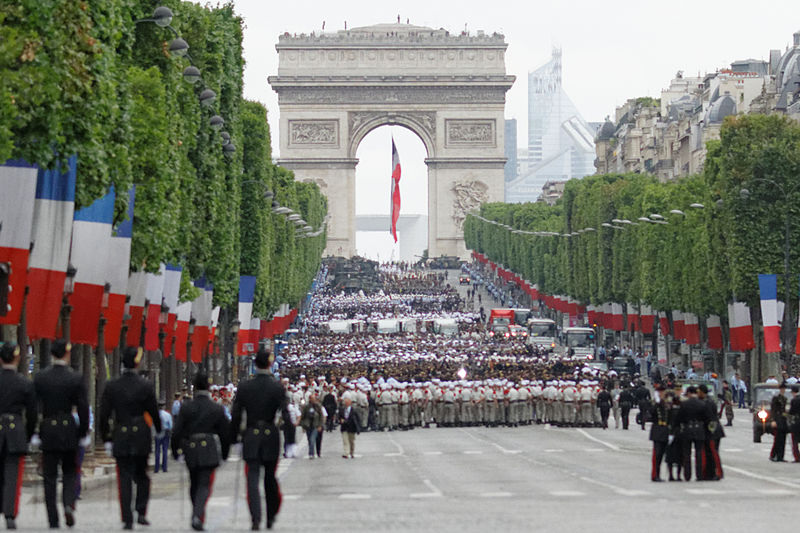On Sunday, France celebrated its national day, Bastille Day, which marks the anniversary of the storming of the Bastille, seen as a symbol of the monarchy’s abuse of power, on July 14, 1789. On this date, which has become a symbol of the French Revolution, the French nation celebrates its unity around the founding values of the republic: freedom, equality and fraternity.
As a member of parliament, and in particular as a citizen of France, I feel eternal gratitude towards the republic, the first in the world to grant Jews emancipation. It could be argued that it is thanks to the French Revolution and its values that Jews all over the world were afforded full citizenship rights.
Throughout its history, Jews have made a tremendous contribution to France and its culture. Author Marcel Proust; Prime Minister Léon Blum; Justice Minister Robert Badinter; historian and partisan Marc Bloch; philosopher and political activist Simone Weil, who became the fifth woman to receive the honor of being buried in the country’s Pantheon monument in Paris; René Cassin, who helped draft the Universal Declaration of Human Rights, adopted by the U.N. General Assembly in 1948; Georges Charpak, who won the Nobel Prize in physics.
These figures and others embody the unique connection between France and its Jews. It is no wonder that a prayer for the French republic’s success has been recited in France’s synagogues every Shabbat for the past 200 years.
My concern is no longer just for the Jews, but for France in its entirety.
Unfortunately, on this July 14, it is to my regret that France sometimes finds it difficult to realize its beautiful values. Beyond the grand declarations, France finds it hard to wage an effective battle against rising anti-Semitism, in particular in its new embodiment in the hatred of Israel, which has resulted in the murder of 12 French Jews in recent years.
On the French right, including among lawmakers from President Emmanuel Macron’s party, the hatred of Israel and the United States in general, and of U.S. President Donald Trump and Israeli Prime Minister Benjamin Netanyahu in particular, is blatant; I experience it every day. Iran, which denies the Holocaust, announces its intentions of developing nuclear weapons and openly declares its desire to wipe the State of Israel—where, by the way, some 150,000 French citizens live—off the map. But Europe and France continue to respond passively.
Paris recently named a square in the center of the city after Jerusalem, at a dedication ceremony attended by the mayors of both cities. Yet despite the festive atmosphere, France refuses to recognize Israel’s capital and the capital of the Jewish people, talking instead of “occupation” and supporting the city’s division. This is unfortunate because no peace can come from a historic lie.
My concern is no longer just for the Jews, but for France in its entirety. But I have hope, and I want to remain optimistic. France has proved in the past that it knows how to stand on the side of democracy and freedom. That is why I wish France a clear view of reality, and to remain loyal to the lofty ideals that make the French such a special nation.
Meyer Habib is a French parliamentarian.
This article first appeared in Israel Hayom.


























